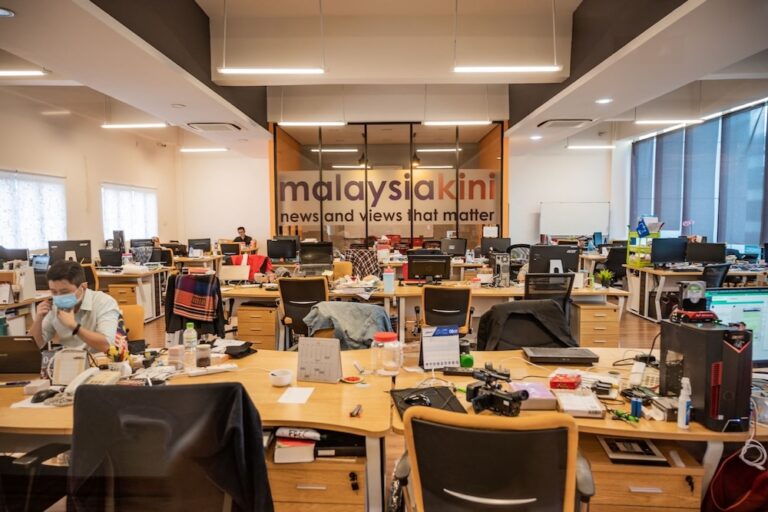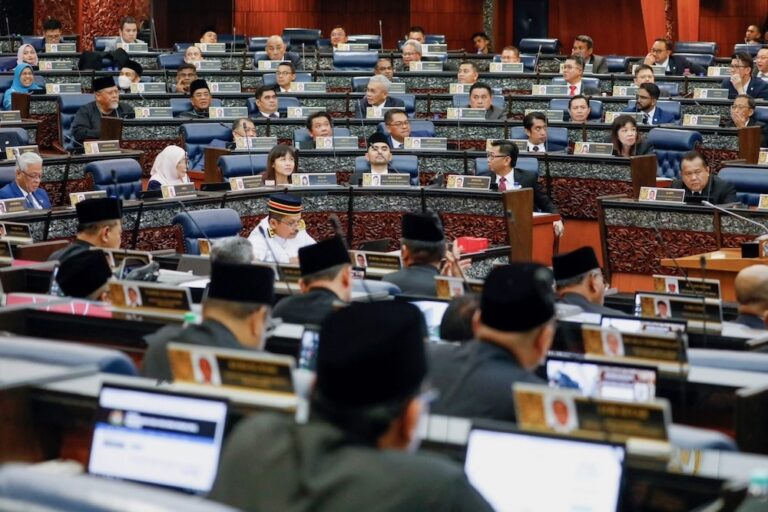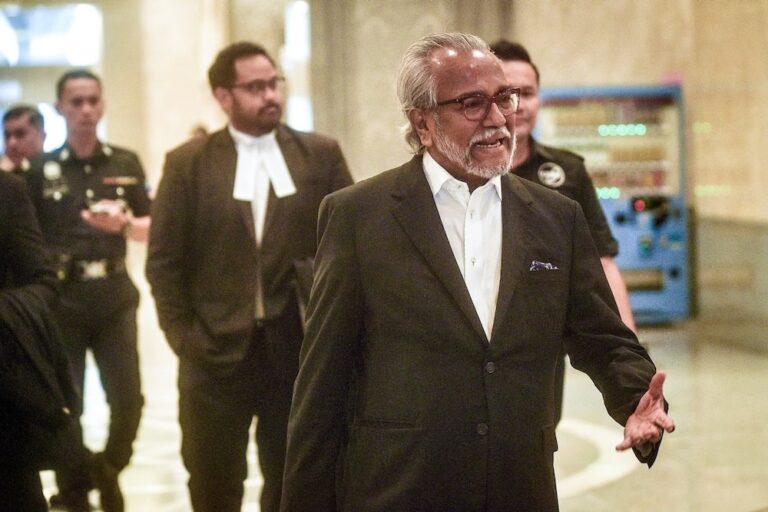(HRW/IFEX) – The following is a 6 April 2009 Human Rights Watch press release: Malaysia: New Prime Minister Should Repeal Internal Security Act Reform Laws Used against Free Speech and Peaceful Assembly (New York, April 6, 2009) – Malaysia’s new prime minister, Najib Abdul Razak, should follow up on his surprise release of 13 detainees […]
(HRW/IFEX) – The following is a 6 April 2009 Human Rights Watch press release:
Malaysia: New Prime Minister Should Repeal Internal Security Act Reform Laws Used against Free Speech and Peaceful Assembly
(New York, April 6, 2009) – Malaysia’s new prime minister, Najib Abdul Razak, should follow up on his surprise release of 13 detainees by promptly acting to rescind the internal security law, Human Rights Watch said today.
On April 3, 2009, his first day in office, Prime Minister Najib ordered the release of 13 detainees and promised that the government would review the Internal Security Act (ISA) under which they were held. The ISA permits indefinite detention without charge or trial. By April 5, all 13 had been freed, including eight terrorism suspects, three alleged forgers, and two leaders of the Hindu Rights Action Force (Hindraf). Three foreigners among them have been deported, while the 10 Malaysians remain under police supervision.
“The release of 13 detainees is a welcome surprise from Prime Minister Najib, who had long supported the Internal Security Act,” said Brad Adams, Asia director at Human Rights Watch. “We hope that his promise to review the law is genuine and that he realizes that it is a blight on the Malaysian justice system and the country’s reputation.”
The detention of the Hindraf members exemplifies the government’s long misuse of the ISA. The release of the two Hindraf leaders, V. Ganabatirau and R. Kengadharan, leaves three Hindraf members in ISA detention for more than 15 months for their part in organizing a massive demonstration on November 25, 2007, to protest educational and economic discrimination against Malaysian Indians.
Hindraf had held the rally even though the police had refused to issue a permit. All five have been accused of threatening national security by “upsetting harmony” among Malaysia’s Malay, Chinese, and Indian communities. Inspector-General of Police Tan Sri Musa Hassan publicly stated, without providing any supporting evidence, that the five “clearly have links with international terrorist organizations and they are involved in activities that amount to inciting racial hatred.”
“The government imposed the ISA instead of charging the Hindraf activists with credible criminal offenses,” said Adams. “If it can’t promptly charge them and others still held and give them a fair trial, it should release them.”
Also on his first day in office, Prime Minister Najib lifted the ban on two opposition party newspapers, Suara Keadilan, published by Parti Keadilan Rakyat (PKR), and Harakah, published by Parti Islam Se-Malaysia (PAS). The ban had been imposed on March 23, 2009, and was widely seen as an attempt to limit opposition parties from getting their messages to voters before by-elections on April 7. Under the Printing Presses and Publications Act 1984, annual license renewal is mandatory for all newspapers. The Home Affairs Ministry can restrict or ban a publication outright on several vaguely defined grounds and no legal remedy is available, as the minister’s discretion to grant, revoke, or suspend licenses is “absolute” and not subject to judicial review.
Human Rights Watch said that lifting the ban was an important step and called for a revision of the printing and publications law to ensure it was consistent with the right to freedom of expression.
The government also continues to use criminal defamation and other laws to undermine opposition politicians and critics of the government. Raja Petra Kamaruddin, founder and editor of Malaysia’s most popular website, MalaysiaToday, was originally detained under ISA for demeaning Islam. He was freed on procedural grounds on October 7, 2008. The government is appealing the ruling. He also has been criminally charged with sedition under the Sedition Act 1948 and criminal defamation under the Penal Code on what Human Rights Watch considers to be a politically motivated charge of defaming a government leader.
Opposition parliamentarian and Democratic Action Party (DAP) chairperson Karpal Singh had been charged under the Sedition Act for remarks he made in relation to political changes in Perak, one of Malaysia’s 13 states. And opposition leader Anwar Ibrahim is currently facing trial on politically motivated sodomy charges.
“If Prime Minister Najib wants to back up his claim as a reformer, he will repeal laws empowering the government to censor the media or to engage in dirty tricks used previously against political opponents,” Adams said.
Also crucial for improving freedom of expression in Malaysia is repeal of the Police Act 1967, which mandates the need for a police permit for public assemblies of three or more people. In 2008 alone, the law was used to shut down peaceful vigils supporting the repeal of the ISA and to limit election rallies by opposition parties.
“Free expression and peaceful assembly are bedrocks of a rights-respecting society,” said Adams. “Until Malaysia’s government stops carving out legal rules to attack its political opponents, it cannot claim to be a modern democratic state.”
For more information on human rights in Malaysia, please visit: http://www.hrw.org/en/asia/malaysia
Updates the “Harakah” and “Suara Keadilan” cases: http://ifex.org/en/content/view/full/101839
Updates the Hindraf activists’ case: http://ifex.org/en/content/view/full/100685
For further information on the Karpal Singh case, see: http://ifex.org/en/content/view/full/93596


